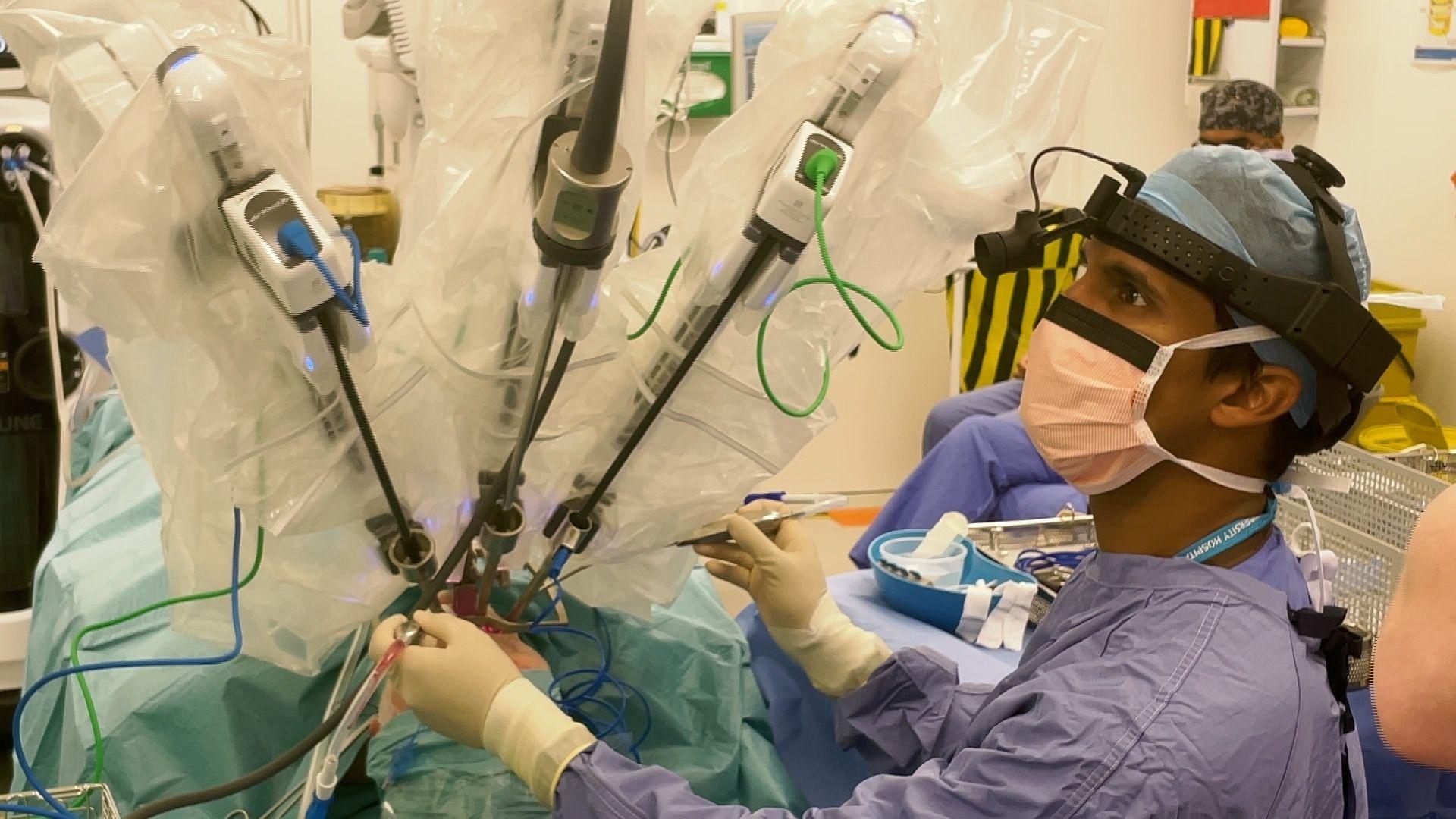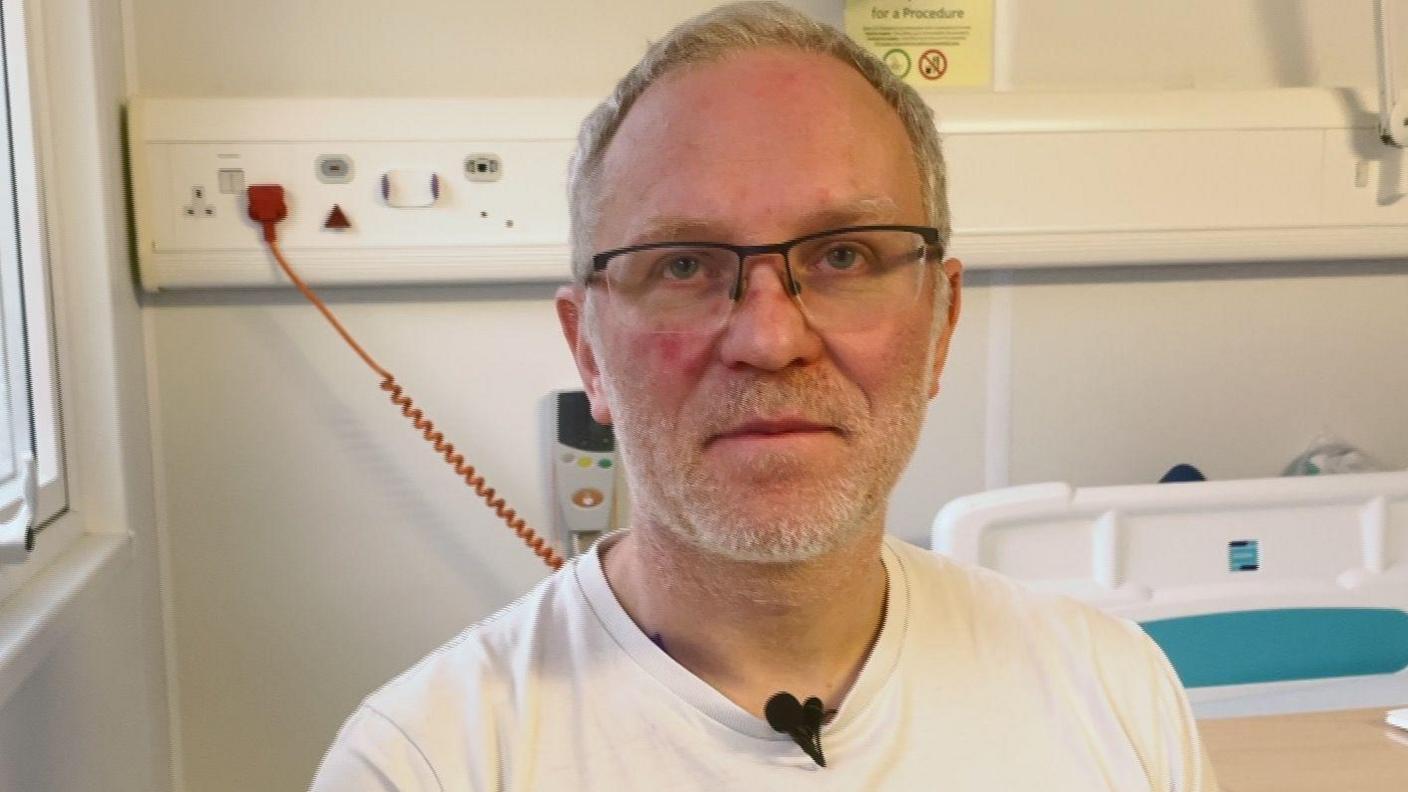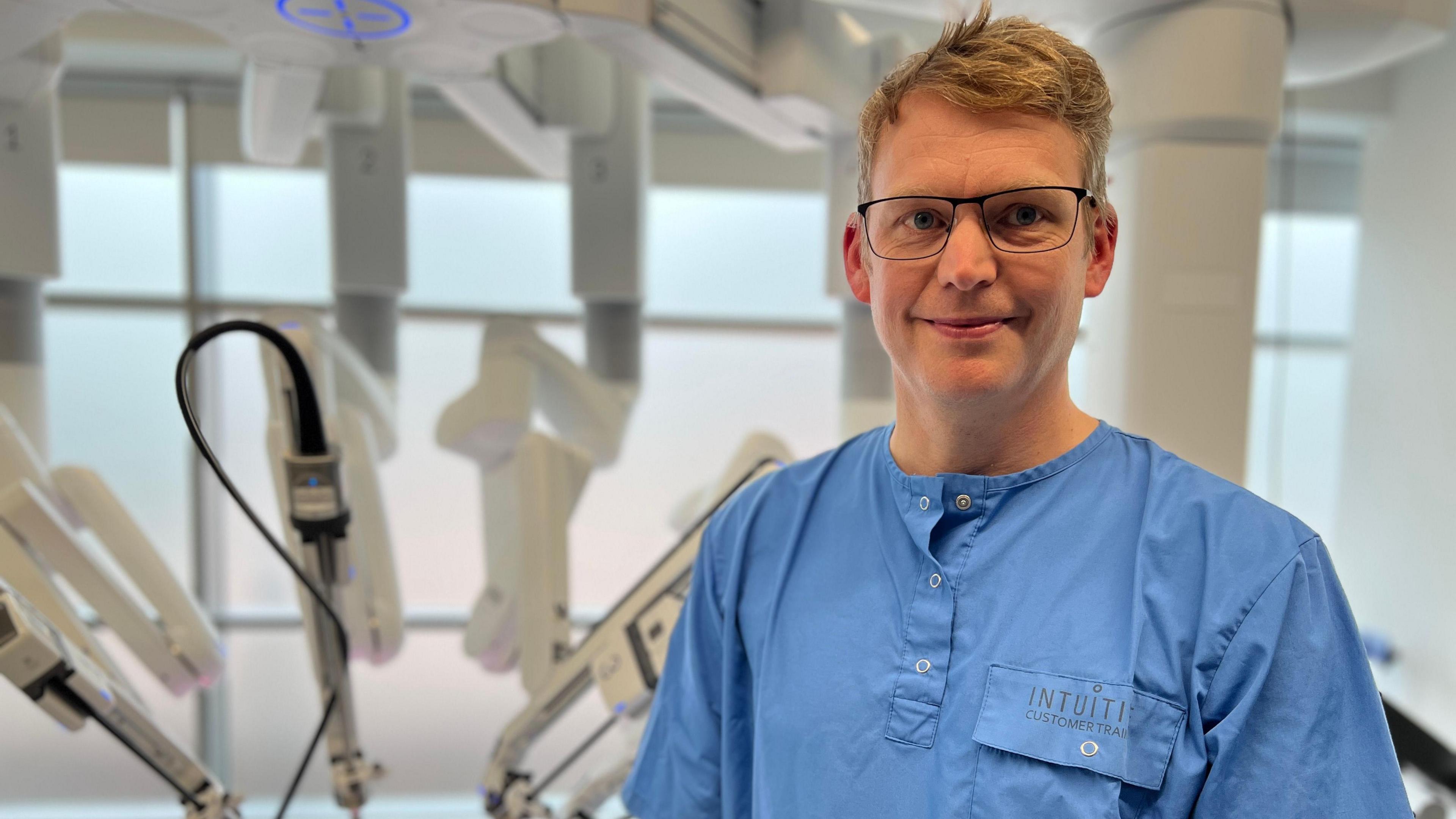Hospital performs 10,000th robotic surgery

Royal Surrey NHS Foundation Trust has four surgical robots
- Published
A hospital in Surrey has performed its 10,000th robotic-assisted surgical procedure.
Royal Surrey NHS Foundation Trust first introduced the technology in 2009 with the installation of a da Vinci surgical system.
It now operates four surgical robots across a range of specialities, including urology, gynaecology, colorectal, hepatobiliary, oesophagogastric and ear, nose and throat (ENT) surgery.
The 10,000th patient was Alistair Hutchinson, 49, who underwent robotic surgery for throat cancer. He said: "It truly changed everything. I was able to receive the treatment I needed to remove the cancer – without facing the harsh side effects I had feared."
The Royal Surrey is the country's fourth largest cancer centre, treating more than 8,000 patients each year across the South East of England.
It delivers 4,000 chemotherapy treatments, almost 3,500 sessions of radiotherapy, and over 2,000 cancer surgeries annually.
The Trust performed just three robotic surgeries in the first year but said the programme has grown into one of the busiest and most advanced in the country.
In 2024, more than 1,500 patients benefitted from robotic surgery, with the Trust saying it performed more prostate surgeries than any other single-site hospital in the UK.
Consultant Ear Nose and Throat surgeon David Walker said: "For many years we've been ahead of the curve in terms of driving better technologies for patients and we know that this creates better outcomes."
The robot does not replace surgeons but enhances their ability to carry out complex operations via very tiny incisions, with greater accuracy and precision.
The surgeon operates the robot from a control console, performing the procedure using a minimally invasive approach, also known as keyhole surgery.
Patients benefit from faster recovery, shorter hospital stays, better outcomes and less complications while it also helps the hospital improve efficiency and save bed days.

Mr Hutchinson was concerned before he was told the surgeons would be using robotics
Mr Hutchinson said: "Because the throat is such a sensitive area, I was deeply concerned about the potential long-term side effects.
"My children are only seven and five, and I was worried about how the treatment might affect not just me, but them too. Then I found out robotic surgery was an option."
Tim Pencavel, consultant surgeon and joint chief of service for surgery at the Royal Surrey Hospital said the majority of robotic surgeries are for cancer patients.
"Our catchment area for cancer effectively is the western side of the Kent, Surrey and Sussex region.
"Because of that volume of patients, it goes back to needing to help people more efficiently so that we can get more of those people through our doors."
The NHS believes millions of patients will benefit from cutting-edge robotic surgery over the next decade as part of its plans to cut waiting times.
It said half a million operations will be supported by the approach every year by 2035, up from 70,000 in 2023/24, according to NHS projections.
Nine in 10 of all keyhole surgeries, such as the removal of certain organs affected by cancer, will be delivered with robot assistance within the next 10 years, up from 1 in 5 today with robotic surgery being the default for many operations.
The NHS also expects to see increasing numbers of emergency operations using the technology.
Follow BBC Surrey on Facebook, external, on X, external. Send your story ideas to southeasttoday@bbc.co.uk , external or WhatsApp us on 08081 002250.
Related stories
- Published30 October
